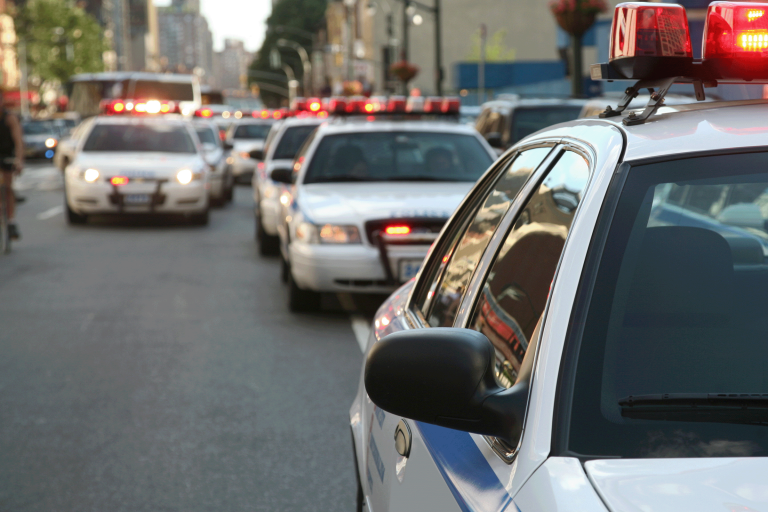Protecting Jewish life must be a top priority. In 2021, 24% of American Jews said their Jewish institutions had been targeted by graffiti, threats, or attacks over the past five years. In 2022, 26% said they were the target of antisemitism—as a physical attack, or a remark in person or online. And, six in ten American Jews say the status of Jews in the United States is less secure than a year ago. Please note that the suggestions offered below are not exhaustive. There is always more that can be done.
Understanding Antisemitism
Law enforcement on all levels—federal to local—would benefit from operating with a universal understanding of what constitutes a hate crime, especially when looking at a multifaceted issue like antisemitism. For example, during the January 2022 hostage crisis in Colleyville, Texas, the FBI erred saying it “was not related to the Jewish community.” They later corrected the record, reinforcing that many in law enforcement need to deepen awareness of the multiple faces of antisemitism—more than a religious bias, it is also a conspiracy about Jewish power and control.
The IHRA Working Definition of Antisemitism, including its illustrative examples, can provide important clarity for law enforcement on all forms of antisemitism. The authoritative definition of antisemitism is a proven, valuable tool for law enforcement entities in the U.S. and abroad.
AJC’s Translate Hate is a glossary of antisemitic tropes, words, and symbols that often hide in plain sight. It can help educate law enforcement officers on antisemitism they may encounter, and law enforcement agencies can share it on their websites as a resource for the community.
Responding to Antisemitism
Cooperate with the Jewish community | While today 65% of American Jews believe law enforcement is effective in responding to the needs of the Jewish community, that number is a sharp drop from 81% in 2019. To help ensure community needs are being met, agencies can tap a point person to be a central address for the Jewish community when a security need arises. The Jewish Community’s Secure Community Network, which works closely with the Department of Homeland Security, can provide the needed expertise.
Report hate crimes | Astonishingly, dozens of cities with populations greater than 100,000 — reported zero or did not report hate crimes to NIBRS in 2021, according to the FBI. Local, state, tribal, and federal law enforcement agencies voluntarily submit hate crimes data to the FBI, per the 1990 Hate Crimes Statistics Act. But inaccurate, incomplete, and simply absent hate crime data has stymied efforts to formulate effective responses. Vast gaps in reporting must be closed.
Law enforcement agencies across the country should use the National Incident-Based Reporting System (NIBRS), to collect and share more accurate data with the FBI. Law enforcement can take advantage of Department of Justice resources—increasingly available, bolstered by the Jabara-Heyer NO HATE Act—for hate crimes bias training and establishing hate crimes hotlines.
Prosecute consistently | Antisemitic hate crimes must be prosecuted with greater consistency and to the fullest extent of the law. If they are not, it sends a message to potential perpetrators that it is permissible to commit a hate crime because it will not be taken as seriously.
Promote awareness among the legal community | Attorneys should be aware of the many ways antisemitism can manifest: not just as a religious crime, or a crime motivated by white nationalists, but one inspired by stereotypes, scapegoating, or conspiracy theories.
Preventing Antisemitism
Raise awareness | Understanding antisemitism and its patterns can help prevent it. Law enforcement should arrange for training opportunities for officers and recruits about the different ways antisemitism can manifest. By planning for predictable increases in antisemitic incidents—during elections, Jewish holidays, and conflicts within the Middle East—law enforcement can safeguard local Jewish communities and prevent attacks before they occur.
Protect Jewish institutions | Law enforcement plays a crucial role in safeguarding synagogues, Jewish community centers, and nonprofit organizations. The 2018 Protecting Religiously Affiliated Institutions Act protects all religiously affiliated property against threats of force.
Empower the Jewish community | Law enforcement should encourage Jewish institutions to apply for nonprofit security grants from the Department of Homeland Security, which provide funds to nonprofit organizations for physical security enhancements and activities. Additionally, Jewish community members, particularly leaders in Jewish institutions and synagogues, should participate in security training to be prepared in case of an emergency. Community members can also be trained as volunteer security guards.
Encourage reporting of hate incidents | AJC’s State of Antisemitism in America 2023 Report found that in 2023, 3% of respondents, or 41 American Jews were the target of an antisemitic physical attack, yet less than a third reported the incident to the police. While these numbers are too small to extrapolate, they reveal a broader issue of underreporting. One reason why many Jews do not report is that they believe nothing will change (resignation in fighting antisemitism) and/or it is not serious enough (normalization of antisemitism). Law enforcement should engage with the Jewish community and encourage reporting.


